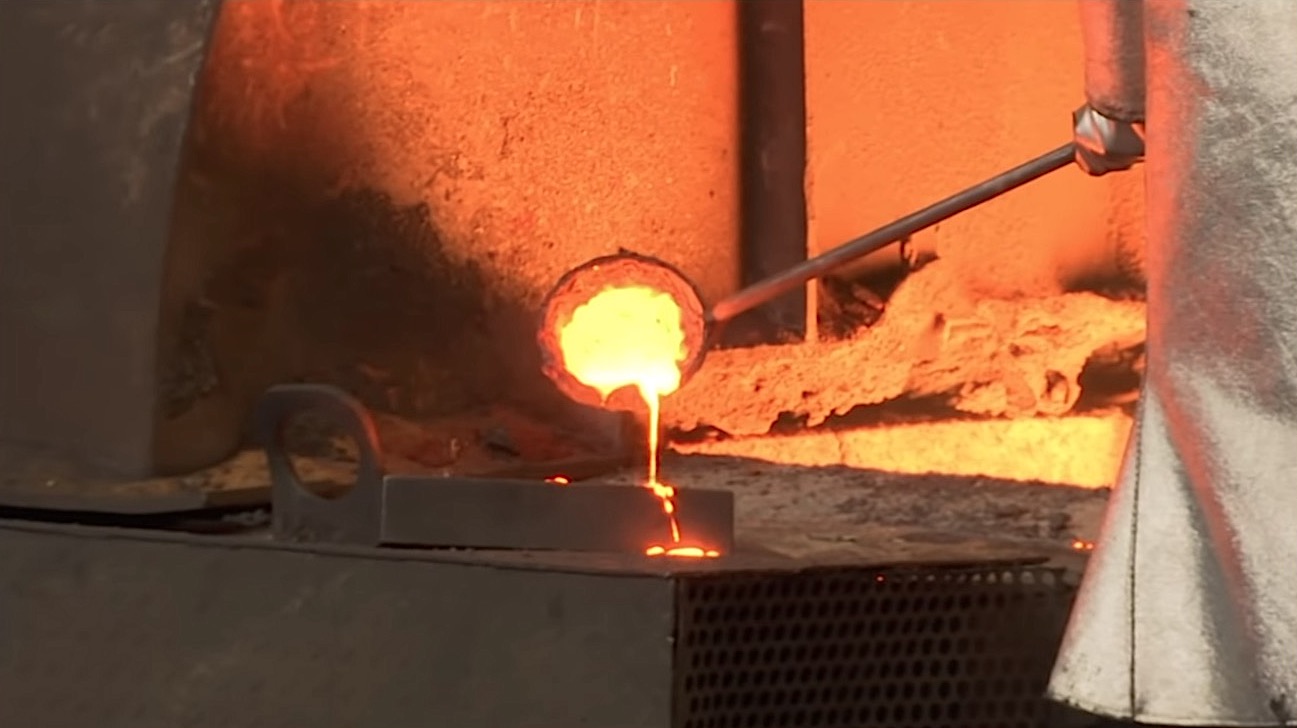Canada, Mexico, and the EU vow swift retaliation for Trump's tariffs


A free daily email with the biggest news stories of the day – and the best features from TheWeek.com
You are now subscribed
Your newsletter sign-up was successful
President Trump's 25 percent tariff on imported steel and 10 percent levy on aluminum went into force for Mexico, Canada, and the European Union at midnight on Friday, and all three key U.S. allies quickly vowed to retaliate. The specter of a trade war sent U.S. markets reeling, with the Dow closing down 252 points, or 1 percent, on Thursday. The EU has promised to target imports of U.S. products like Kentucky bourbon, motorcycles, and blue jeans, while Mexico said it will slap tariffs on U.S. pork, grapes, cheeses, apples, and flat steel. Canada, which provides most of America's imported steel and aluminum, said it will hit the U.S. with tariffs on $12.8 billion worth of steel, toilet paper, and other goods.

Early Friday, Germany's economy minister said the EU might coordinate its response with Canada and Mexico. French President Emmanuel Macron called Trump's tariffs "illegal" and warned that as the world learned in the 1930s, "economic nationalism leads to war." Canadian Prime Minister Justin Trudeau said "these tariffs are totally unacceptable" and criticized Trump's national security justification for imposing them. "That Canada could be considered a national security threat to the United States is inconceivable," he said.
"There will be a lot of focus in the weeks ahead on the direct, first-round effects of the steel and aluminum tariffs" in the U.S., including higher prices for certain products and some businesses that "shutter entirely," writes Neil Irwin at The New York Times. But the "longer-term danger for the American economy" is that Trump's "trade policy is displaying an erratic, improvised, us-against-the-world quality." In a market economy, "businesses can thrive despite bad policies," as long as they are stable, he adds. "That stability is part of what differentiates rich countries from poor ones," and the big cost of Trump's policies is "the risk that the United States is not as stable and reliable a place to do business as you once thought."
The Week
Escape your echo chamber. Get the facts behind the news, plus analysis from multiple perspectives.

Sign up for The Week's Free Newsletters
From our morning news briefing to a weekly Good News Newsletter, get the best of The Week delivered directly to your inbox.
From our morning news briefing to a weekly Good News Newsletter, get the best of The Week delivered directly to your inbox.
A free daily email with the biggest news stories of the day – and the best features from TheWeek.com
Peter has worked as a news and culture writer and editor at The Week since the site's launch in 2008. He covers politics, world affairs, religion and cultural currents. His journalism career began as a copy editor at a financial newswire and has included editorial positions at The New York Times Magazine, Facts on File, and Oregon State University.
-
 Wuthering Heights: ‘wildly fun’ reinvention of the classic novel lacks depth
Wuthering Heights: ‘wildly fun’ reinvention of the classic novel lacks depthTalking Point Emerald Fennell splits the critics with her sizzling spin on Emily Brontë’s gothic tale
-
 Why the Bangladesh election is one to watch
Why the Bangladesh election is one to watchThe Explainer Opposition party has claimed the void left by Sheikh Hasina’s Awami League but Islamist party could yet have a say
-
 The world’s most romantic hotels
The world’s most romantic hotelsThe Week Recommends Treetop hideaways, secluded villas and a woodland cabin – perfect settings for Valentine’s Day
-
 TikTok secures deal to remain in US
TikTok secures deal to remain in USSpeed Read ByteDance will form a US version of the popular video-sharing platform
-
 Unemployment rate ticks up amid fall job losses
Unemployment rate ticks up amid fall job lossesSpeed Read Data released by the Commerce Department indicates ‘one of the weakest American labor markets in years’
-
 What a rising gold price says about the global economy
What a rising gold price says about the global economyThe Explainer Institutions, central banks and speculators drive record surge amid ‘loss of trust’ in bond markets and US dollar
-
 US mints final penny after 232-year run
US mints final penny after 232-year runSpeed Read Production of the one-cent coin has ended
-
 Warner Bros. explores sale amid Paramount bids
Warner Bros. explores sale amid Paramount bidsSpeed Read The media giant, home to HBO and DC Studios, has received interest from multiple buying parties
-
 Gold tops $4K per ounce, signaling financial unease
Gold tops $4K per ounce, signaling financial uneaseSpeed Read Investors are worried about President Donald Trump’s trade war
-
 Electronic Arts to go private in record $55B deal
Electronic Arts to go private in record $55B dealspeed read The video game giant is behind ‘The Sims’ and ‘Madden NFL’
-
 New York court tosses Trump's $500M fraud fine
New York court tosses Trump's $500M fraud fineSpeed Read A divided appeals court threw out a hefty penalty against President Trump for fraudulently inflating his wealth
